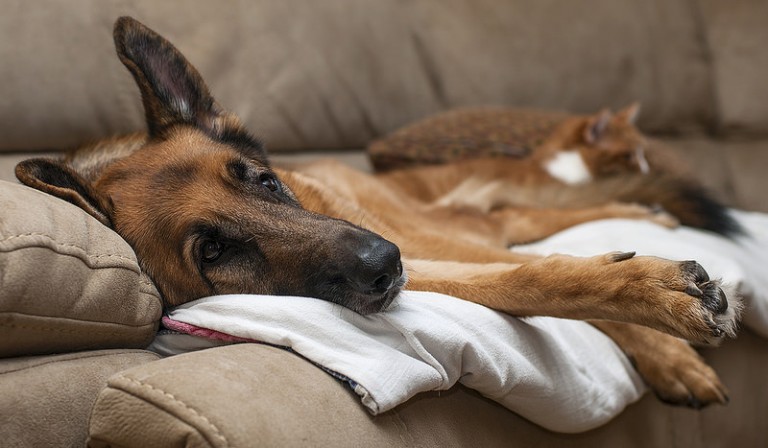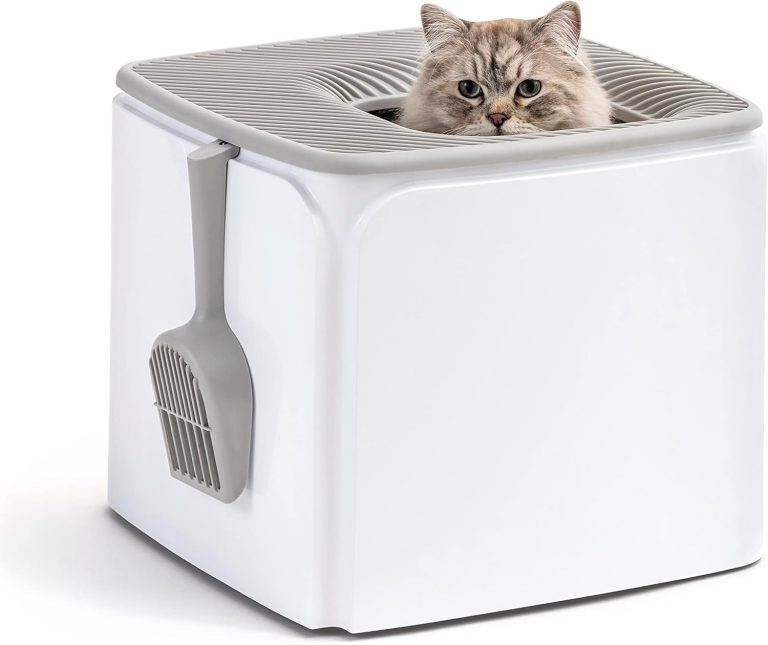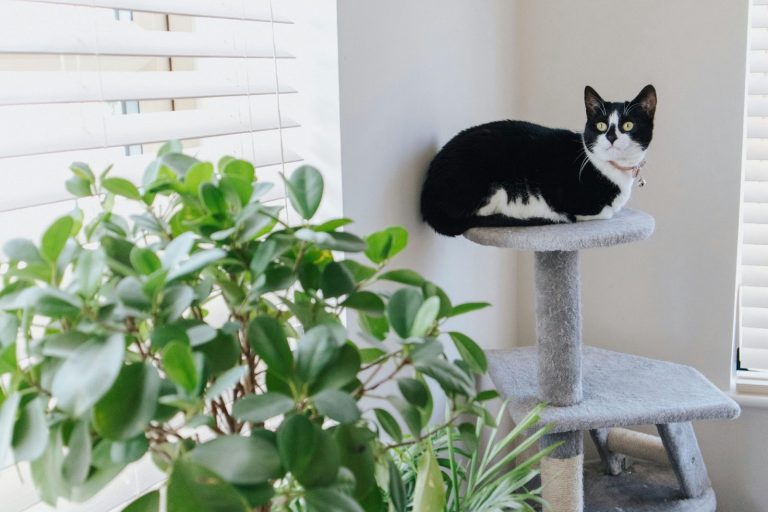Setting the Record Straight on Cats and Toxoplasmosis
No, you can’t get this disease simply by petting your cat. In fact, the risk posed by cats is pretty low in general.

Is it safe for a pregnant woman to have a cat?
Toxoplasmosis is a disease cats can pass on to people, and that could pose a threat to an unborn child. However, the risk from cats is much lower than previously thought. Although it is wise for a pregnant woman to observe good hygiene, chances are, if you catch toxoplasmosis — it won’t be from your cat.
So let’s delve more deeply into the myths surrounding toxoplasmosis and cats and consider sources of infection for people.

Don’t leave your pet’s safety to chance
Sign up for Petful recall alerts today.

What Is Toxoplasmosis?
Toxoplasmosis is an infection caused by a microscopic, single-celled organism called Toxoplasma gondii. This is a highly adapted parasite designed to complete its life cycle in a cat, and the parasite can accidentally infect other species including mice, birds and people.
Animals (including people) pick up infection in 1 of 2 ways:
- Contact with infectious particles in cat feces or the soil
- Eating meat containing Toxoplasma cysts
How Common Is Toxoplasmosis in People?
Surveys in the United States and the United Kingdom show that 20–30% of people are infected at some point in their life.
This may sound scary, but in healthy people, toxoplasmosis is a mild infection with either no signs at all or flu-like symptoms. Once someone is infected, the immune system fights to develop immunity that walls off the Toxoplasma so it no longer poses a problem. Immunosuppressed people, just as with any infection, are more severely affected.
The main risk is to people with weak immune systems and pregnant women (because of potential damage to the unborn child). Studies show that a mother infected around the time of conception has a 1% chance of passing it on to the baby (although the consequences can be severe, including blindness and brain damage).
Interestingly, people who work with cats, such as veterinarians, are no more likely to test positive for Toxoplasma than people who don’t come into contact with cats often. When I was pregnant with my first son, I tested negative for it, despite having many cats and working full time as a veterinarian.
Now I’d like to talk more about why cats aren’t really the enemy…

Why Cats Are Not the Enemy
Don’t get me wrong: Pregnant women should be careful, but my aim is to put the role played by cats into proportion. From the following, you can see that the risk posed by cats is low.
Raw Meat
Cats become infected through eating vermin or raw meat infected with Toxo. This means outdoor hunting cats or those fed a raw meat diet are most at risk. If you have an indoor cat who eats canned food or kibble, chances are, he’s clear.
Short Period of Infection
A cat is infectious for only around 14 days. After this, the immune system fights off the Toxo.
Cat Poop
During that 14-day window, the cat may pass poop containing Toxo, but — and it’s a big but — these Toxo particles take at least 24 hours to become infectious. Thus, scooping every day means that whatever is in the tray is safe.
Fur Is Not Infectious
It’s not possible to pick up Toxo by petting a cat. Yes, always wash your hands before eating, but that’s just good hygiene.
To pick up infection from your cat requires the following perfect storm:
- You have not already been infected (and therefore have no immunity).
- Your cat is a hunter or fed infected raw meat.
- You handle cat poop during the 14-day window when the cat is infectious.
- That cat poop has been in the tray for more than 24 hours.
- You then eat without washing your hands.

Main Sources of Infection
The biggest risk is from soil, unwashed fruit and vegetables, and raw or undercooked meat. Indeed, the biggest risk to people is eating raw or undercooked meats containing Toxoplasma cysts, such as beef, lamb or pork. There is also an issue when gardening if the soil is infected by stray cats.
Stay safe with these tips:
- Avoid uncooked meat: Thoroughly cook all meat until there is no red ooze.
- Wash all knives and utensils that come into contact with raw meat to avoid cross-contamination.
- Wear gloves when gardening, then wash your hands afterward.
- Wash fruit and vegetables in case they have been in contact with contaminated soil.
- Wear gloves to empty the litter tray — just in case! Also, scoop the poop daily.
- Prevent your cat from hunting.
And finally…
No one wants to expose an unborn child to even the slightest risk, so err on the side of caution and get someone else to empty the litter tray. But there is no need to rehome your cat if you become pregnant.

This pet health content was written by a veterinarian, Dr. Pippa Elliott, BVMS, MRCVS. It was last reviewed Dec. 17, 2018.







